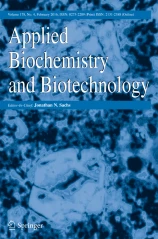Abstract
Fish protein hydrolysate (FPH) has shown immense potential as a dietary protein supplement and immunostimulant in aquaculture, especially in Nile tilapia production. Four isoproteic diets (30% crude protein) were prepared by including FPH at varying percentages (0%, 0.5%, 1%, and 2%). Nile tilapia fed with FPH diets for 90 days, and their growth performance, feed utilization, blood biochemistry, liver and gut morphology, and resistance against Streptococcus iniae were investigated. The findings revealed that diets physical attributes such as pellet durability index and water stability were remarkably (p < 0.05) varied between experimental diet groups. Furthermore, the test diets were more palatable when FPH was included at 1% and 2%. Fish that were fed with a 2% FPH-treated diet had significantly (p < 0.05) greater growth indices than other treatments. Additionally, their feed utilization was significantly (p < 0.05) improved. The experimental diets and intestinal total bacteria count (TBC) exhibited a rising trend with FPH levels, where the 2% FPH-treated diet recorded the highest TBC. Neutrophil (109/L), lymphocyte (109/L), eosinophil (109/L), and red blood cell(1012/L) counts were significantly (p < 0.05) higher in the 2% FPH-treated group, while the white blood cell (109/L), and basophil (109/L) counts were not influenced by the FPH inclusion. Moreover, the FPH-treated groups displayed lower creatinine, bilirubin, and urea levels than the control. The histological examination demonstrated that themid-intestine of 2% FPH-fed Nile tilapia had an unbroken epithelial wall, more villi with frequent distribution of goblet cells, wider tunica muscularis, and stronger stratum compactum bonding than other treatments. Additionally, this group exhibited more nuclei and erythrocytes and less vacuolar cytoplasm in liver than their counterparts. Nile tilapia that were given a diet containing 2% FPH had significantly (p < 0.05) higher resistance (83.33%) to S. iniae during the bacterial challenge test. A significant (p < 0.05) enhancement in farm economic efficiency was observed in the higher inclusion of FPH in diets. In summary, 2% FPH supplementation in Nile tilapia diets improved their growth performance, feed utilization, health status, disease resistance, and farm economic efficiency.

